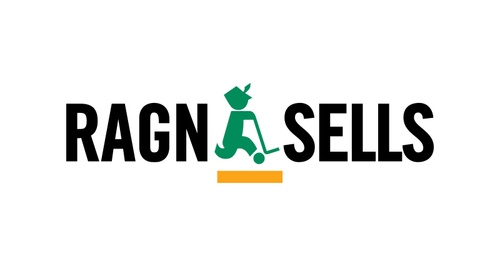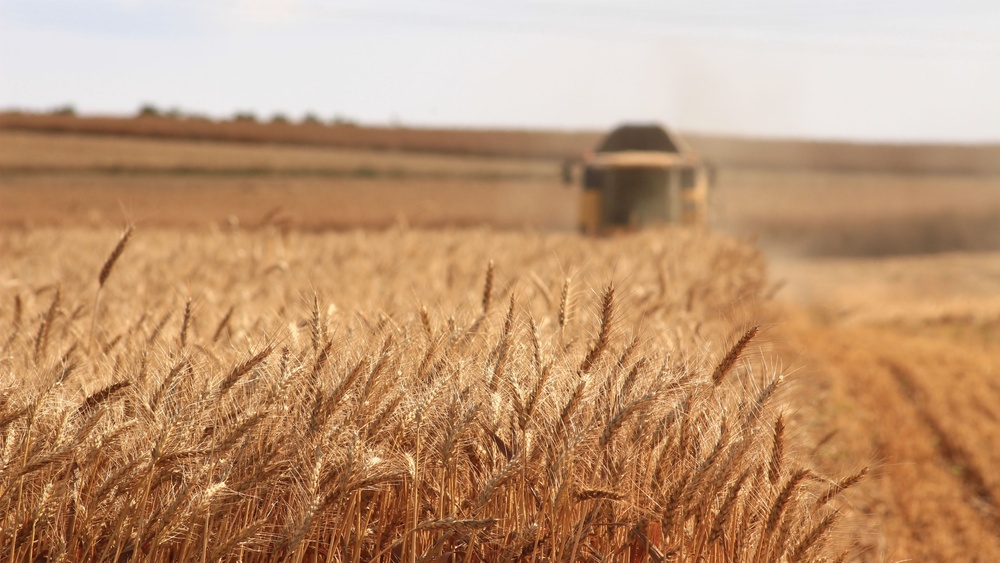EU Phosphorus Index: EU’s Phosphorus Imports from Russia Keep Rising – Despite the War

Despite Russia’s ongoing war in Ukraine, the EU continues to import significant amounts of phosphorus from Russian mines. A new analysis by Swedish environmental company Ragn-Sells shows that phosphorus imports from Russia reached around €500 million in the first half of 2025 – an increase of more than 30 percent compared to the same period last year.
“It is deeply troubling that the EU has become more dependent on phosphorus from Russian mines,” says Pär Larshans, Chief Sustainability Officer at the Ragn-Sells Group. ”If Europe is serious about building resilience and safeguarding its food security, we must stop relying on imported raw materials and start recovering the phosphorus we already have in our wastewater.”
Phosphorus is an essential element for producing mineral fertilisers and animal feed. Today, nearly all of the phosphorus used in the EU comes from mines outside the Union – primarily in Russia and Morocco. The EU’s only active phosphate mine, located in Finland, supplies just 5–10 percent of the needs of European agriculture.
Between January and June 2025, businesses in EU countries bought various types of phosphorus fertiliser and phosphate from Russia worth around €500 million, according to preliminary data from the European Commission. This represents an increase of more than 30 percent compared to the same period last year. Overall, Russian phosphorus accounts for roughly a quarter of the EU’s total phosphorus imports.
“Closing the loop on phosphorus is not just about the environment – it’s about European security and competitiveness. No phosphorus means no food. We must start treating phosphorus as the strategic resource it truly is,” says Pär Larshans.
Ragn-Sells’ innovation company EasyMining has developed the Ash2Phos technology, which enables the recovery of more than 90 percent of the phosphorus from incinerated sewage sludge ash. Through this process, phosphorus is efficiently extracted and refined into RevoCaP – a high purity, recycled calcium phosphate. The technology makes it possible to replace imported phosphorus with locally produced recycled phosphorus.
The European Commission recently approved the use of calcium phosphate recovered from sewage sludge ash as fertiliser in organic farming – paving the way for expanding organic food production in the EU. At the same time, a decades-old EU rule from the BSE crisis still prohibits the use of recycled phosphorus from sewage sludge in animal feed – even though modern incineration technology effectively eliminates the risks the ban was originally intended to address.
“As long as this ban remains in place, there’s a real risk that the technology will be exported outside the EU. By simply updating an outdated annex in the feed legislation, the EU could unlock a green billion-euro industry, close the phosphorus loop, and boost European competitiveness,” says Pär Larshans.
For further comment or interviews, please contact:
Pär Larshans, Chief Sustainability Officer, Ragn-Sells Group, +46 70 927 29 63, par.larshans@ragnsells.com
Debby Porter Laffitte, Press Officer, Ragn-Sells Group, +46 10 723 24 16, press@ragnsells.com
Fact box: EU import sources for phosphorus fertiliser and phosphate January–June 2025
Between January and June 2025, the EU imported phosphate fertilisers and phosphates worth over €2 billion. The five largest supplier countries according to preliminary data from 21July were:
1. Morocco: €730 million
2. Russia: €510 million
3. Israel: €140 million
4. Norway: €110 million
5. South Africa: €85 million
Source: All data are provided by the European Commission’s Directorate-General for Agriculture and Rural Development (DG AGRI). Categories included are Phosphatic fertilisers, Phosphates and Mixed Fertilisers. The latter encompasses several products based on phosphorus, primarily NPK (nitrogen-phosphorus-potassium), DAP (diammonium phosphate), and MAP (monoammonium phosphate).
Link: https://agridata.ec.europa.eu/extensions/DashboardFertiliser/FertiliserTrade.html#
Fact Box: What is Phosphorus?
Phosphorus is essential for all life and plays a key role in plant growth, making it vital for both mineral fertilisers and animal feed. In organic farming, it improves acidic soils and helps increase yields.
Ragn-Sells and its innovation company EasyMining have developed Ash2Phos, a technology that recovers over 90 percent of the phosphorus from incinerated sewage sludge ash. This enables Europe to replace imported, mined phosphorus with locally produced, high purity recycled phosphorus. The first Ash2Phos plants are being built in Helsingborg, Sweden, and Schkopau, Germany. The product is called RevoCaP. Calcium phosphate from sewage sludge ash, such as RevoCaP, was recently approved by the EU for use in organic farming. However, recycled phosphorus is still not allowed in animal feed within the EU due to outdated regulations from the BSE crisis.
Source: Ragn-Sells
About Ragn-Sells Group
The environmental company Ragn-Sells converts waste into raw materials that can be used over and over again. Ragn-Sells drives the transition to a circular economy through solutions that reduce its own and other actors' environmental and climate impact. Ragn-Sells is a family owned corporate group founded in 1881. The company operates in four countries and employs 2,760 people. In 2024, Ragn-Sells’ turnover was SEK 8.8 billion. www.ragnsells.com
Contacts
Press Officer
- press@ragnsells.com
- +46709272400






